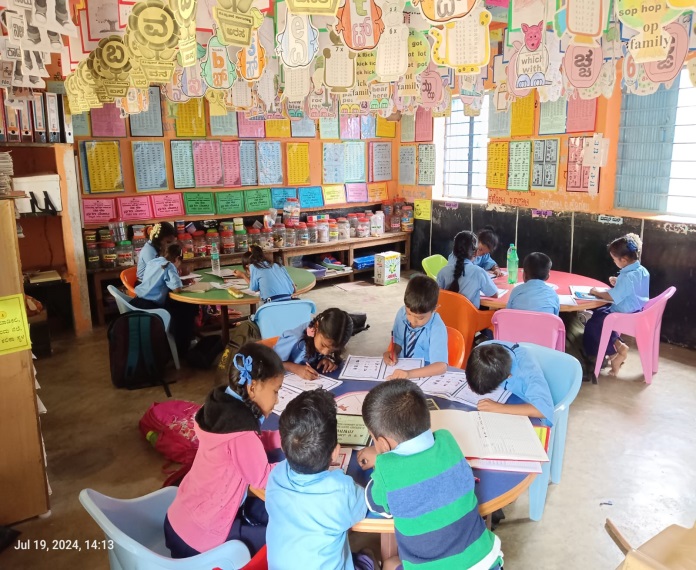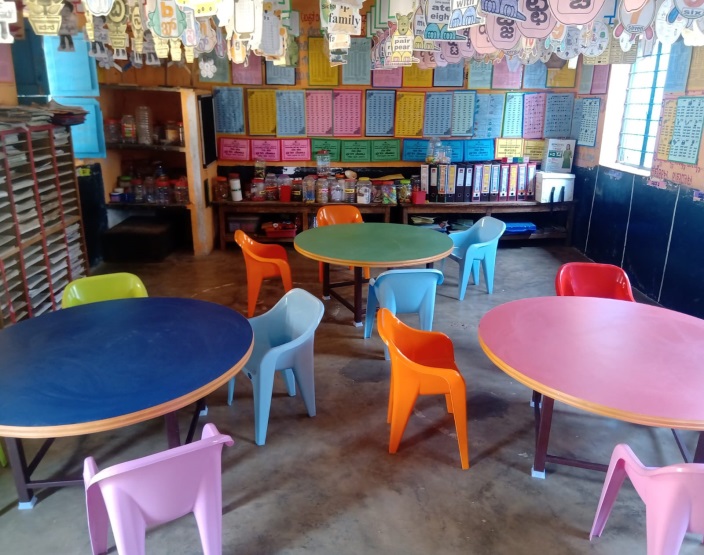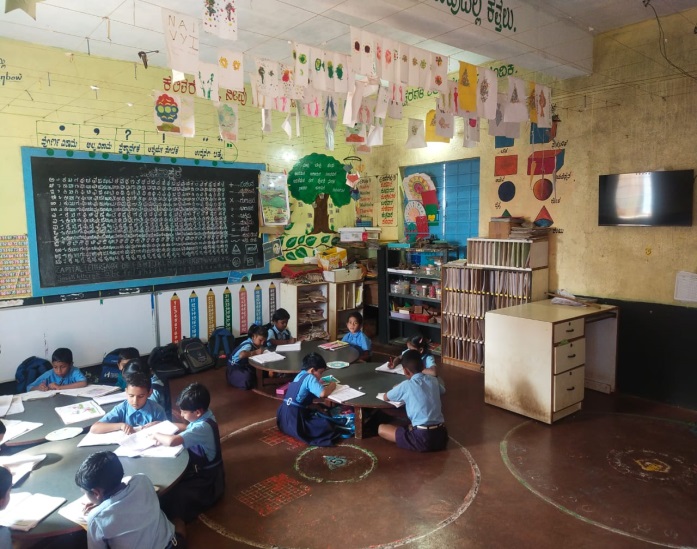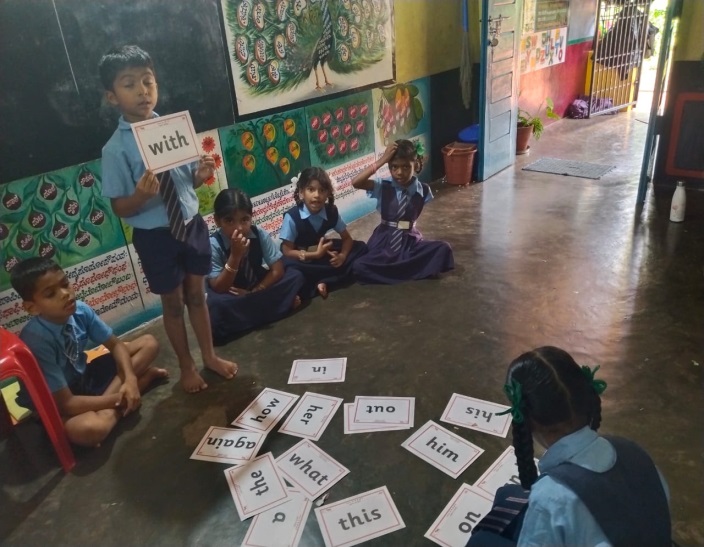- Background:
In 1992-93, a micro-project was carried out in some villages of H.D. Kote taluk in collaboration with UNICEF. The results of the micro-project revealed that the schools were unattractive and students were dropping out of school due to some external reasons, and it was observed that girls were more likely to drop out of school. The major challenges of multi-grade and multi-level learning in schools were also identified. It was observed at this stage that over-reliance on text books and unattractive school learning environment were the reasons for the low academic achievement of children.
In the backdrop of all these factors, the Nalikali teaching and learning system was first introduced in the state of Karnataka in H.D. Kote taluk of Mysore district. Although this system was developed as a means of solving the problem of multi-grade teaching, it is a regional method to solve some of the defects of traditional teaching and curriculum. It may be recalled here that the primary school teachers of H.D. Kote taluk, with the help of interested officials and experts, had prepared the learning materials to complement this system at their level.
Nalikali program is a prestigious activity-based teaching and learning system in the state of Karnataka. Currently, Nalikali activity-based teaching and learning system has been implemented in Kannada medium classes 01 to 03 of government primary schools in the state of Karnataka since 2009-10 and in Urdu medium classes 01 and 02 from 2010-11. The said Nalikali system has been implemented across the state, and it has been around 15 years. Currently, this teaching and learning system has been innovatively modified under the 'Nipun Bharat - FLN learning principles'.
1.1 The basic principles of the Nalikali classroom process are:
- Self-learning
- Self-paced learning
- Enjoyable learning
- Multi-level learning
1.2 Groups implemented in the Nalikali classroom process:
From the year 2023-24, along with the mass group, 1. Teacher-assisted group 2. Practice or reinforcement activities group and 3. Self-learning - self-assessment group have been identified.
1.3 Description of Nalikali classes:
1.4 English Nalikali (ENK) Program:
In the Kannada and Urdu medium Nalikali units of government primary schools in the state of Karnataka, the learning of English as a second language has been introduced in the Nalikali model in an activity-based system. This is called the ENK program. In the year 2019-20, the Level-01 program has been implemented for Class 01, and in 2020-21, the Level-02 program for Class 02. In 2022-23, the Level-03 program has been implemented for Class 03. In addition to this, learning materials have been supplied by the department to all the Nalikali units of Kannada and Urdu medium. Technical assistance from UNICEF programs and consultants has been utilized for the creation and design of ENK learning materials with the help of resource teachers of the state.
1.5 Teacher Training:
Currently, there are a total of 48,833 Nalikali units in Kannada medium government primary schools and a total of 3,817 Nalikali units in Urdu medium government primary schools. To make the teachers understand the classroom learning process, training is organized under the supervision of all the D.I.T.s under the leadership of DSERT. An officer has been appointed as a nodal officer to implement the Nalikali program at each D.I.T. stage. E-resources related to necessary guidance have been uploaded on the D.I.T.s website.
1.6 Learning Teaching Materials (LTM’s):
Based on the basic learning principle of ‘Fundamental Literacy and Numeracy (FLN)’ and based on learning ability and learning outcomes, class-wise and subject-wise learning materials are prepared by education experts and resource teachers in collaboration with each other. The learning materials are prepared at the state level, printed by KTBS with the Central PAB approved grant and provided to all schools.
1.7 Textbooks with practice:
All children studying in the Nalikali teaching and learning system are provided with free text books with practice every year through the state government's 'Vidya Vikas' scheme. Textbooks with practice have been created under the principles of learning basic alphabet and numerical knowledge, and the work of creation is being carried out under the leadership of Samagra Shikshan Karnataka with the help of education experts and in partnership with various NGOs.


























